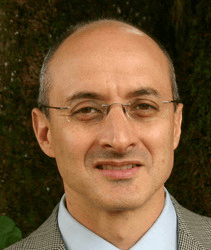In cooperation with our esteemed academic partner, the Children’s Hospital of Philadelphia (CHOP), the Open Medical Institute conducted an OMInar on the topic of Medical Quality and Safety from February 23-25, 2021. This course is also part of the OMI Leadership Program, which is designed to enable OMI alumni to take leading positions in the healthcare systems of their home countries.

The course director, Dr. Ron Keren, MPH (Children’s Hospital of Philadelphia), is well acquainted with the OMI Program as he was a faculty member in previous OMI Seminars. The high-level faculty was completed by returning speaker, Dr. Jessica Hart, and our new OMI faculty members: Dr. Daniel Hyman, MMM; Dr. Ursula S. Nawab; Ellen Nord, MPH; Dr. Irit R. Rasooly, MSCE; Domonique Varallo, BSN, RN; and James Won, PhD. We are delighted to welcome them to the OMI team!
This year’s schedule covered the following topics:
- The History of QI and Improvement Methodologies (Ron Keren, MD, MPH)
- Project Selection, Aims and Measures (Ellen Nord, MPH)
- Psychological Safety (Ursula S. Nawab, MD)
- Choosing the Right Team: Stakeholder Analysis and Change Management (Jessica Hart, MD & Daniel Hyman, MD, MMM)
- Discussion of Recent Events, Covid Issues, Vaccine Distribution (all faculty)
- Prioritization and PDSA Cycles (Jessica Hart, MD & Daniel Hyman, MD, MMM)
- Measurement (Ron Keren, MD, MPH)
- Systems Thinking and Patient Safety Investigations (Daniel Hyman, MD, MMM & Ursula S. Nawab, MD)
- Human Factors Engineering (James Won, PhD)
- Cognitive Bias (Irit R. Rasooly, MD, MSCE)
The highly interactive program also included several workshops:
- Project Charter, Process Mapping, Driver Diagram, Fishbone Diagram (Jessica Hart, MD, Ellen Nord, MPH & Domonique Varallo, BSN, RN)
- RCA Simulation (Jessica Hart, MD & Ursula S. Nawab, MD)
- From Action to Improvement (all faculty)
31 fellows from 22 different countries were invited to participate in the OMInar, an impressive number of 27 of these physicians having already attended OMI Seminars in the past. The highly engaged fellows and their insightful questions allowed for a very interactive OMInar with workshops and lively discussions between and amongst both fellows and faculty. Fellows had to hand in an assignment prior to the course, examples from this pre-work were used during the final workshop.
This OMInar provided a very clear structure on how to investigate adverse events happening in hospitals and explained what steps should be taken to implement improvements. I will definitely bring these steps to the hospital I work in. As the hospital I work in introduced a system for the registration of adverse events half a year ago, the steps explained in the last workshop will be very valuable.
I really appreciated the session “Systematic Way of Analyzing Local Problems and Planning Change.” Thanks to this part of the OMInar, I will put my focus on reducing the problems of missing radiology results and long waiting times. I will also try to reduce the issue of radiation exposure through education and stakeholder involvement.
The topic of patient safety is the cornerstone of high-quality health care. Defining patient safety is also important towards reducing negative outcomes of care, such as mortality and morbidity. As a result, I will focus more on collecting relevant data and start analyzing patient outcomes. Additionally, I will set goals and commit to constant evaluation of patient care system.